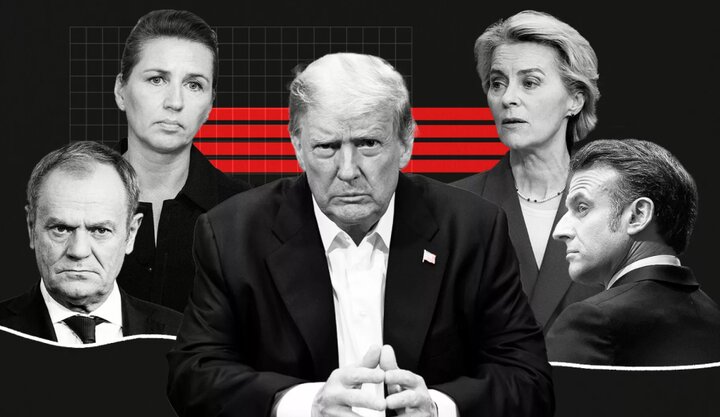Ukraine’s fateful days and diplomatic chess at the Paris and Riyadh summits.
After about three years of the Ukrainian crisis as one of the most complex and sensitive geopolitical crises in the world, negotiations to resolve it have accelerated these days with the coming to power of the new US President, Donald Trump.
Over the past week, on the one hand, we have witnessed the rapprochement of Moscow and Washington and the meeting of their representatives in Saudi Arabia, without coordination with Ukraine and the European Union, and on the other hand, European countries, centered on France, held a series of meetings in Paris. What results and achievements have these two meetings in Riyadh and Paris brought?
From the Trump-Putin telephone conversation to the meeting of their representatives in Riyadh
Russian President Vladimir Putin and his American counterpart, Trump, spoke on the phone on the evening of Wednesday, February 14, 1403, and expressed hope for a face-to-face meeting. Although the date of the meeting has not yet been announced, the very nature of the phone call and the planning of the meeting without taking into account the concerns of Ukraine and European allies indicates new diplomatic complications and increasing distrust in transatlantic relations.
After the phone call between Trump and Putin, Russian Foreign Minister Sergei Lavrov and US Secretary of State Marco Rubio met in Riyadh; the conversation was held in the absence of Ukrainian and European representatives and was described as “constructive” by both negotiating parties.
Ukraine’s fateful days and diplomatic chess at the Paris-Riyadh summit
Kremlin foreign policy adviser Yuri Ushakov said in an interview with Russian Channel One: “We agreed to take into account each other’s interests and at the same time advance bilateral relations, because both Moscow and Washington are interested in this issue.” He also stressed that the Putin-Trump meeting will probably not take place next week, as preparations for the meeting will take more time.
After the Riyadh meeting, Trump’s Secretary of State Marco Rubio said: “Today is the first step on a long and difficult but important path. Donald Trump intends to act quickly to end the war in Ukraine, and the goal is to reach a fair and lasting agreement.” He also announced that the United States and Russia have agreed on four principles for ending the war in Ukraine:
1. Reopening embassies in the capitals of both countries
2. Appointing a high-level US team to help end the war
3. Starting talks on geopolitical and economic cooperation to create the right conditions for ending the conflict
4. Participants in the Riyadh meeting pledge to advance negotiations
Although the Riyadh talks were held behind closed doors, the statements of Russian Foreign Ministry spokeswoman Maria Zakharova showed that the Moscow representative in the meeting emphasized conditions such as Ukraine not joining NATO and Kiev’s observance of the principle of neutrality.
The Russian Foreign Ministry spokeswoman announced that Moscow expects NATO to abandon its 2008 promise to include Ukraine in the alliance and that Ukraine accept neutrality. Russia demands that Kiev return to the provisions of its 1990 declaration of sovereignty; a declaration in which Ukraine pledged to remain a neutral country, not participate in military blocs and avoid nuclear weapons.
In parallel with the acceleration of the restoration of US-Russian relations, US relations with Ukraine are worsening, and the verbal spat between Trump and Zelensky has made headlines in the world media in recent days.
The sword that Zelensky and Trump have drawn
Relations between Kiev and Washington have been deteriorating rapidly since last week, after Donald Trump announced that he had a good conversation with Vladimir Putin and that they had decided to end the war.

